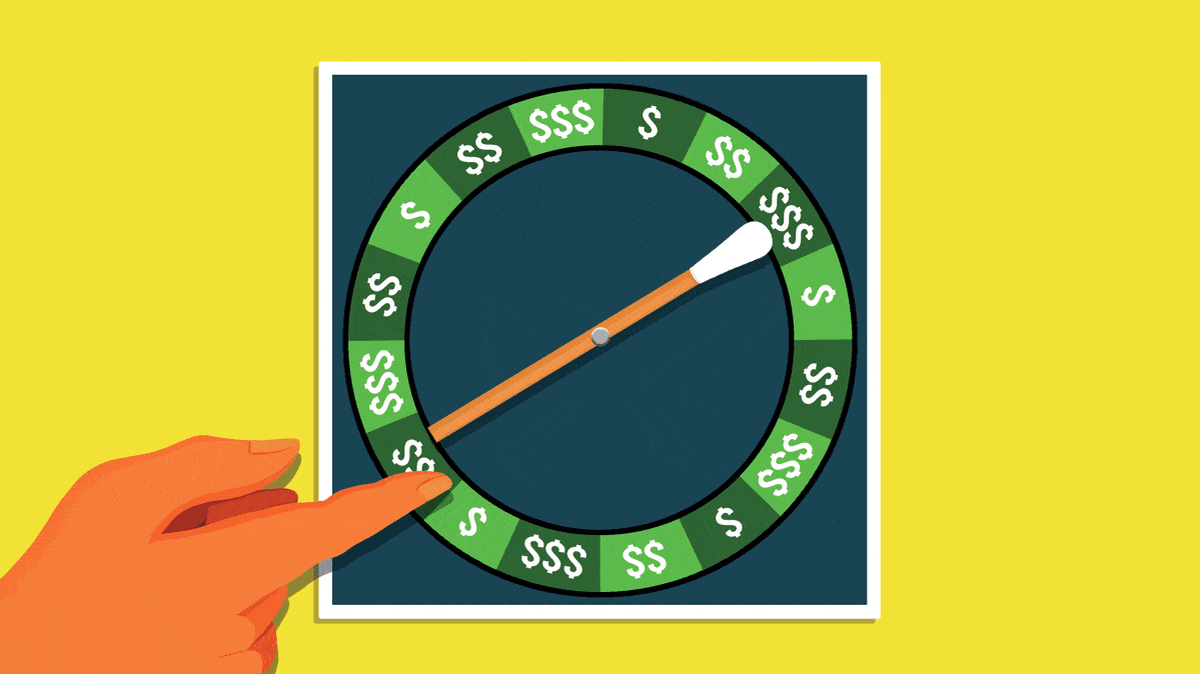[ad_1]
Rapid antigenic tests sometimes fail to detect COVID-19 at an early stage or in a person without any symptoms. They may also be less sensitive in detecting the omicron variant, the fda said end December.
The most accurate gauge of COVID-19 is a PCR (polymerase chain reaction) test, with an estimated accuracy of 98%. But because these tests require processing on expensive laboratory machines, they take longer and cost more.
In a PCR test, a small amount of DNA is extracted, usually via a swab in the nose or from saliva. Next, a healthcare worker mixes the DNA with various substances and uses a machine called a thermal cycler to heat and cool the sample 20 to 40 times. to produce millions of copies of the original DNA. By amplifying DNA, the PCR process can detect even tiny amounts of RNA sequences unique to COVID-19.
The test kits themselves aren’t expensive – $ 29 from test maker Abbott, according to spokesperson Kim Modory. But the machines to process the results usually cost a few thousand dollars. to several hundred thousand dollars, with high-end models processing many samples at the same time.
Sample processing can take from less than an hour to a few hours, but you will usually have to wait a day or two for your results. This is because labs prefer to run many samples at the same time, just like you typically run a dishwasher full of pots and pans rather than just one bowl and one spoon after breakfast.
“If you walked in and said, ‘Oh my God, you know, you drew my specimen at three o’clock this afternoon, and it takes you, say, 2-4 hours to get it through the machine, j ‘should have my result at eight,’ says Birenbaum of the National Independent Laboratory Association. “Well, if they would just take your specimen and run it through the machine, yes.” But they are waiting for other specimens. And so they might not run it until midnight, when they have the other specimens with it. And that makes the whole system more efficient.
Outside analysts say it’s difficult to name a fair standard price for a COVID-19 test taking into account rent, staff, insurance, utilities and other operational expenses. It’s “hard to answer because people will claim to have a lot of sunk costs and administrative expenses that they need to recover, but $ 200 and up isn’t the right price,” says Niall Brennan, CEO of Health Care Cost Institute, which studies claims data from four participating insurers.
Gregory Price, PhD, professor of economics at the University of New Orleans, uses cost-benefit analysis when looking at test prices. “If the test costs $ 200, but not knowing someone is infected costs more than $ 200 (for example, medical bills, lost wages, and even death), paying $ 200 for a test COVID / PCR is his decision, â€he said.
Others point to the price Medicare pays labs for PCR tests as a fair baseline: $ 75 plus an additional $ 25 if the lab returns more than half of its results within two days. In contrast, a PCR test in Japan can cost as low as $ 20.
For easier-to-process antigen tests, Medicare pays between $ 35 and $ 75, according to a spokesperson for the Centers for Medicare and Medicaid Services.
“I have just been in Ireland where the antigen tests administered by professionals in a pharmacy cost 35 euros and now in Denmark where everything is free, this only underlines the for-profit nature of our healthcare system” says Brennan of the Health Care Cost Institute. “The government should have invested heavily to ensure that every household in the United States has free access to antigen testing – unfortunately we did not.”
The Biden administration recently appointed that insurers must pay for home tests in addition to lab tests, and announced plans to distribute free tests as well. But in early 2022, buying a home antigen test in the United States is often three or four times more expensive than in countries like Germany and India, where they cost just a few dollars each.
“In Europe, more than 100 rapid tests have been approved,†says Ge Bai, who is also a professor of health policy and management at the Johns Hopkins Bloomberg School of Public Health in Baltimore. “The fierce competition between these tests helped resolve the ‘limited supply’ bottleneck. . . and causes prices to drop dramatically. In contrast, only 15 tests have been approved by the FDA in the United States.
“Consumers should demand that more manufacturers of over-the-counter tests be approved as soon as possible,†she adds. “Pitting against each other is the most reliable way to help consumers. “
The FDA responds that it is working as quickly as possible to approve home antigen testing, including two in late December 2021.
“In balancing speed and safety, we have taken many steps to accelerate public access to accurate and reliable home testing,†said FDA spokesperson Jim McKinney. “Unfortunately, many of the submissions the FDA has received for home testing include incomplete or poor data, and it is the responsibility of the FDA to protect public health by refusing to allow bad testing.â€
[ad_2]

